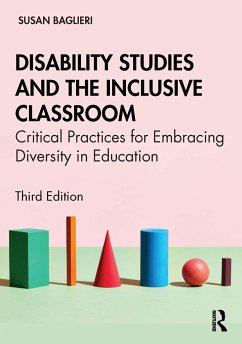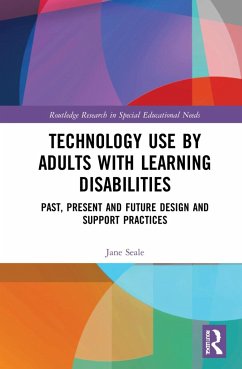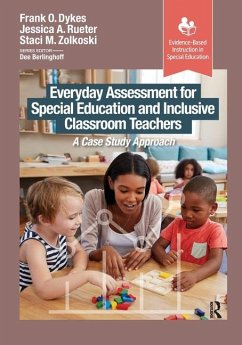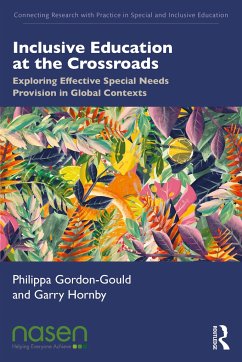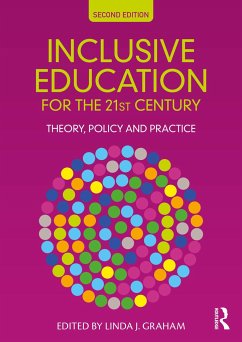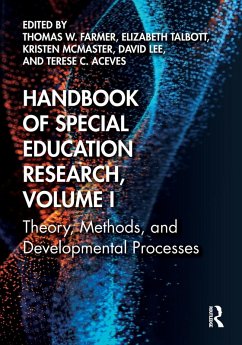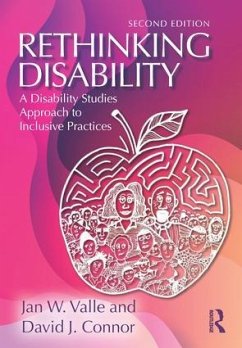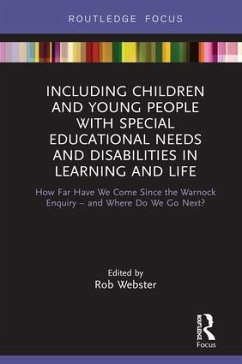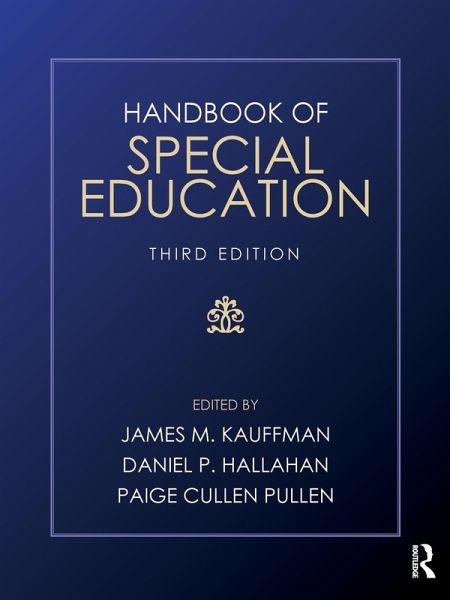
Handbook of Special Education
Versandkostenfrei!
Versandfertig in 6-10 Tagen
108,99 €
inkl. MwSt.

PAYBACK Punkte
54 °P sammeln!
The Handbook of Special Education brings greater clarity to the ever-expanding topic of educating exceptional children. Across the volume, chapter authors review and integrate existing research, identify strengths and weaknesses, note gaps in the literature, and discuss implications for practice and future research. Chapters follow a consistent model: Definition, Causal Factors, Identification, Behavioral Characteristics, Assessment, Educational Programming, and Trends and Issues.This book provides comprehensive coverage of all aspects of special education in the United States including cultur...
The Handbook of Special Education brings greater clarity to the ever-expanding topic of educating exceptional children. Across the volume, chapter authors review and integrate existing research, identify strengths and weaknesses, note gaps in the literature, and discuss implications for practice and future research. Chapters follow a consistent model: Definition, Causal Factors, Identification, Behavioral Characteristics, Assessment, Educational Programming, and Trends and Issues.
This book provides comprehensive coverage of all aspects of special education in the United States including cultural and international comparisons. The Handbook of Special Education discusses emerging trends in the field for researchers and practitioners while also providing foundational material for graduate students and scholars. The third edition has been updated and shortened to make it more accessible and helpful to all of its users, taking into account the recent developments and most current academic research in the field.
This book provides comprehensive coverage of all aspects of special education in the United States including cultural and international comparisons. The Handbook of Special Education discusses emerging trends in the field for researchers and practitioners while also providing foundational material for graduate students and scholars. The third edition has been updated and shortened to make it more accessible and helpful to all of its users, taking into account the recent developments and most current academic research in the field.






